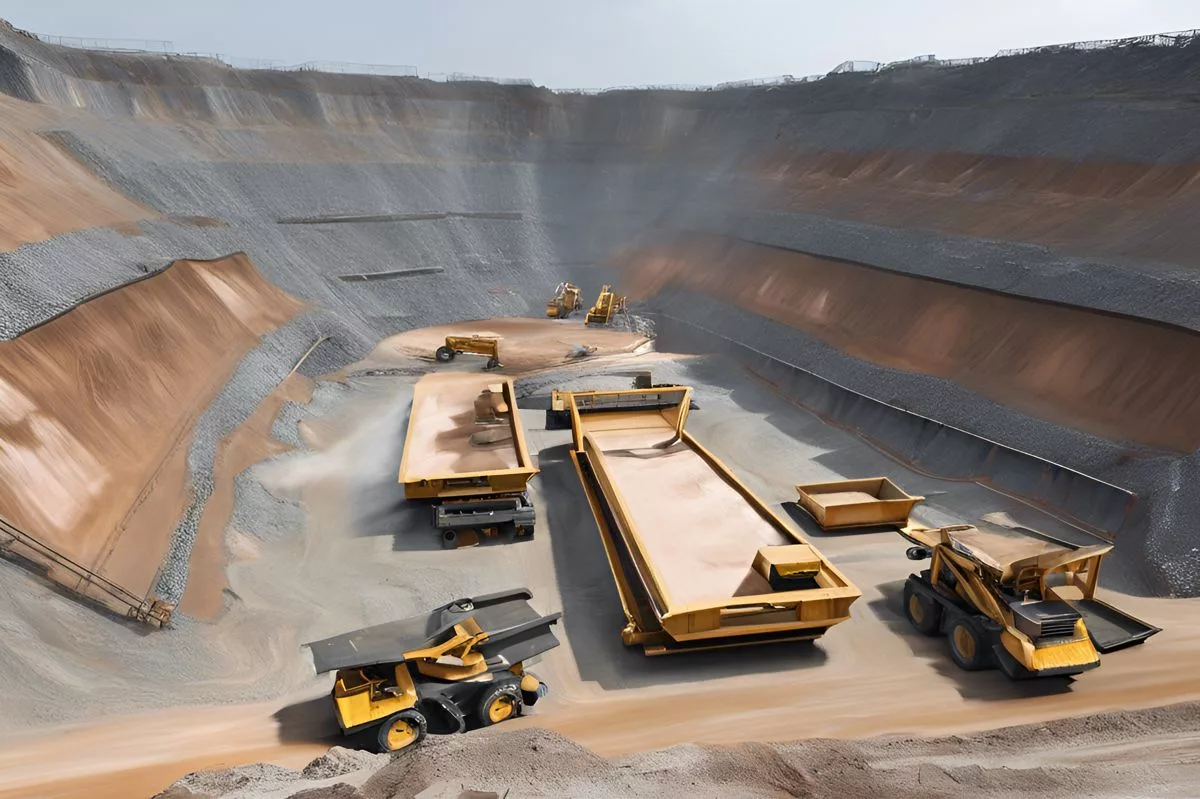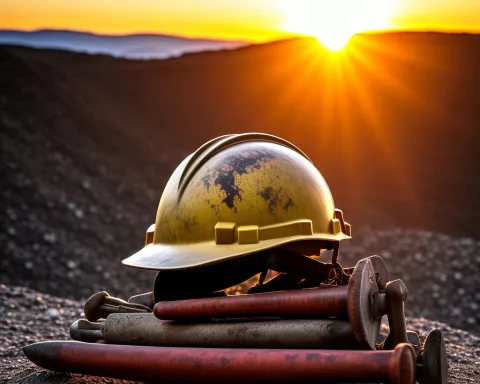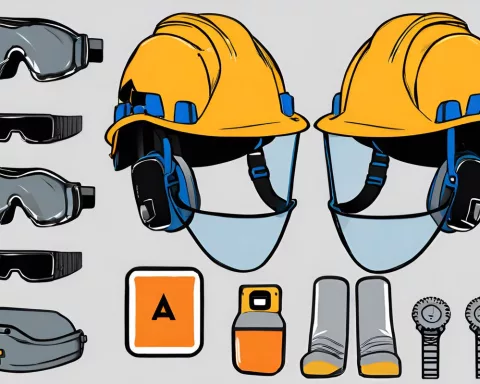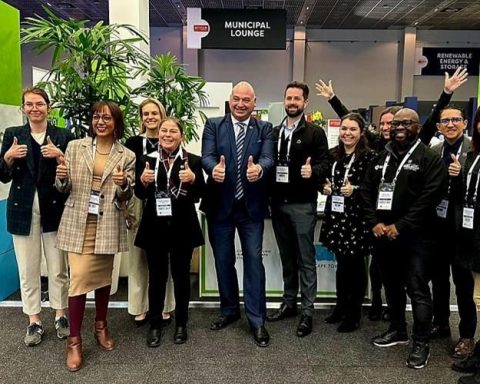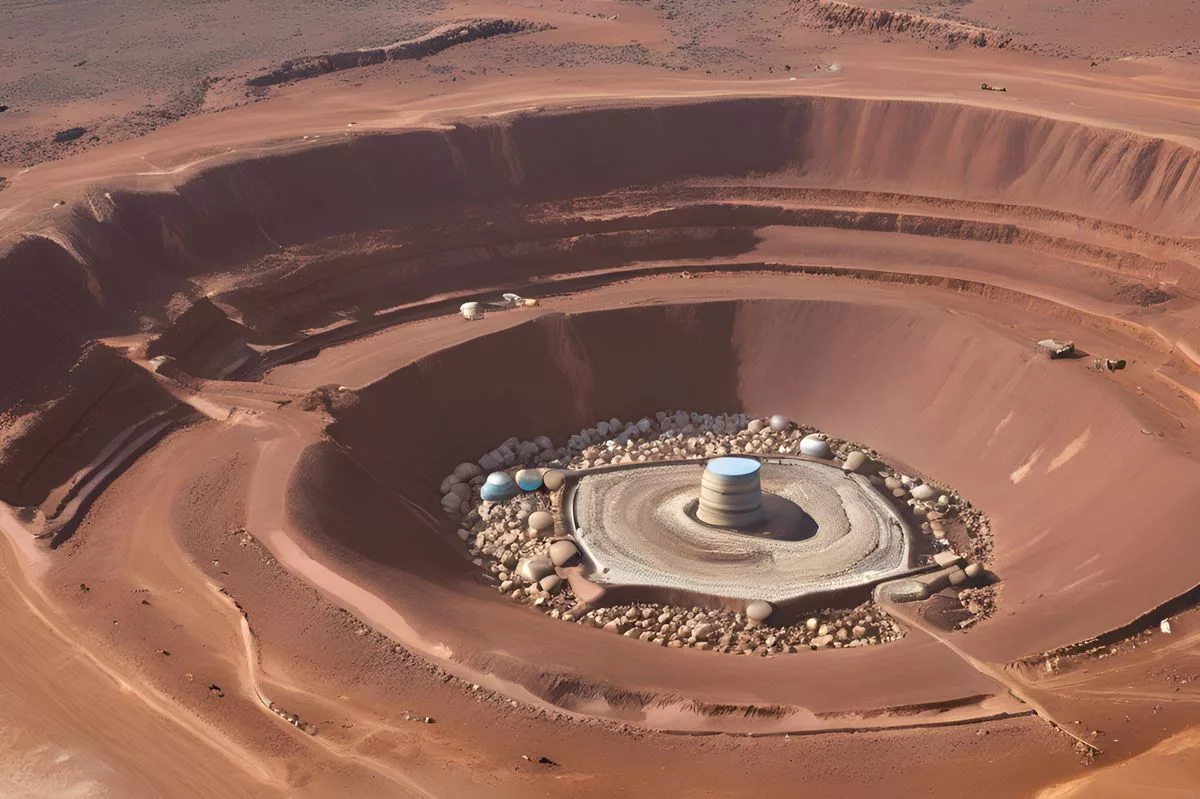The African mining industry has shown its resilience despite facing challenges like rising energy costs and power cuts. The sector has made a noteworthy contribution to the nation’s GDP in 2023, thanks to investments in new and existing mining operations. The Department of Mineral Resources and Energy is overseeing the execution of R400 billion in mining projects promised at several investment seminars. The 30th Investing in African Mining Indaba held in Cape Town had a central theme of “Seizing the power of constructive disruption: A daring new era for African mining,” which embodies a determination to transform the mining sector and make it a significant global competitor.
The Resilience of the African Mining Industry
Despite facing challenges such as rising energy costs and power cuts, the African mining sector has showcased its tenacity by making a noteworthy contribution to the nation’s GDP in 2023. Investments in new and existing mining operations have strengthened the nation’s stockpile of valuable minerals, and the Department of Mineral Resources and Energy is overseeing the execution of R400 billion in mining projects promised at several investment seminars. The sector’s adaptability and resilience are evident, making it a vital contributor to the African economy.
Located at the heart of Cape Town in the International Convention Centre, a diverse mix of innovative thinkers, industry pioneers, and policy influencers from around the world assembled for the 30th Investing in African Mining Indaba on February 5, 2024. The central theme of the conference, “Seizing the power of constructive disruption: A daring new era for African mining,” transcends a mere call to action, embodying a battle cry for Africa’s mining sector. It resonates with a spirit of determination and a dream of a prosperous future.
The Resilience of the African Mining Industry
Gwede Mantashe, South Africa’s esteemed Minister of Mineral Resources and Energy, lent his presence to the Indaba. In his inaugural speech, he recognized the challenging year the African mining sector faced in 2023, a year marred by a blend of international and national influences. Rising energy costs, inflation, reduced commodity prices, power cuts, and logistical hurdles stretched operational expenses, restricting the mining sector’s input to the economy to a meager minimum.
Yet, the South African mining sector showcased its tenacity as it still managed to make a minimal, yet noteworthy, contribution to the nation’s Gross Domestic Product (GDP) in 2023. This bears testament to the sector’s adaptability. Over the past half-decade, the sector has seen investments pour into new mining endeavors and the expansion of existing mining operations. This capital infusion has markedly strengthened the nation’s stockpile of industrial minerals, alluvial diamond mines, coal, manganese, iron, gold, platinum group metals, chrome, copper, lithium, and other valuable metals.
The Department of Mineral Resources and Energy (DMRE) has been diligently overseeing the execution of R400 billion mining projects promised at several investment seminars held between 2018 and 2023. These projects are varied, encompassing the mining value chain, geographical location, and commodity.
Significant Achievements and Regulatory Improvements
Casting a spotlight on some noteworthy cases, Nkwe Platinum committed approximately R640 million towards the construction of a new Platinum Mine, a project that initially pledged R13 billion in 2021. The Mokala Manganese Mine, located in the town of Hotazel in the Northern Cape, commenced production in 2021 and has since yielded and exported 2.3 million tons of manganese.
A cutting-edge licensing system was introduced to provide regulatory assurance in the South African mining Industry. The DMRE appointed a service provider for the formation, execution, and upkeep of this system to augment efficiency and transparency in the issuance, approval, and management of prospecting and mining rights permits. This innovative licensing system strives to ensure regulatory certainty and facilitate the transition of existing data. The mission is to accomplish the shift to the new system within a year, thereby eradicating historical backlogs.
Future Explorations and Energy Strategies
The mining sector’s future hinges on exploration. A partnership with the Industrial Development Corporation (IDC) was announced at the previous Mining Indaba, setting up the nation’s exploration fund. The regulatory obstacles and approvals for setting up the fund have been overcome, and the official inauguration of the fund is scheduled for February 6, 2024.
The establishment of this fund is expected to trigger discoveries of rare earth-bearing minerals, such as lithium, coltan, and phosphate within a rock formation known as pegmatine in the Northern Cape, Kwa-Zulu Natal, Mpumalanga, and Limpopo. These discoveries emphasize the immediate need for South Africa to finalize and implement its critical minerals strategy, slated for unveiling this year. The vision is to devise an African Critical Minerals Strategy.
The mining sector’s high energy demands and the resultant power supply limitations have necessitated interventions to alleviate these constraints and buttress the mining sector. The National Energy Regulator of South Africa (NERSA) has registered 1,312 power generating facilities with a cumulative capacity of 6,387 MW, 32% of which caters to the mining load. Mining companies like Gold Fields, Seriti, and Exxaro have leveraged these reforms to fuel their mining operations.
Besides, the Integrated Resource Plan (IRP) of 2019 has facilitated the procurement of 6,094 MW of additional generation capacity. NERSA’s agreement to the ministerial determination for the procurement of 2,500 MW of nuclear capacity signifies a fresh start, and the procurement procedure will begin shortly.
The government maintains its resolve to address the energy constraints and reduce unserved energy to back the economy and the mining sector explicitly. To ensure extensive public participation, the public comments period for the updated version of the 2019 IRP has been prolonged by a month, from February 23 to March 23, 2024.
A Vision for the Future
The optimism permeating the 30th Mining Indaba is indicative of the revitalized effort and commitment to invest in the African new mining order. The ambition is to elevate the African mining sector to a significant global competitor, a sector that promotes local beneficiation, supports industrialization, and aids in the just energy transition from high to low carbon emissions.
The vision of Africa is one of a land free from poverty, unemployment, and inequality, in harmony with the Africa 2063 goals. The combined effort of all stakeholders is essential to transform this vision into reality. As Gwede Mantashe articulated, “Let us work together to build the Africa We Want.”
What challenges has the African mining industry faced in recent years?
The African mining industry has faced challenges such as rising energy costs, power cuts, inflation, and reduced commodity prices. These challenges have stretched operational expenses and restricted the mining sector’s input to the economy to a minimum.
How has the African mining industry shown resilience?
Despite facing challenges, the African mining sector has showcased its tenacity by making a noteworthy contribution to the nation’s GDP in 2023. Investments in new and existing mining operations have strengthened the nation’s stockpile of valuable minerals.
What projects is the Department of Mineral Resources and Energy overseeing?
The Department of Mineral Resources and Energy is overseeing the execution of R400 billion in mining projects promised at several investment seminars held between 2018 and 2023. These projects are varied, encompassing the mining value chain, geographical location, and commodity.
What regulatory improvements have been made in the South African mining industry?
A cutting-edge licensing system has been introduced to provide regulatory assurance in the South African mining industry. The DMRE appointed a service provider for the formation, execution, and upkeep of this system to augment efficiency and transparency in the issuance, approval, and management of prospecting and mining rights permits.
What is the future of the African mining industry?
The African mining industry’s future hinges on exploration, and the establishment of the nation’s exploration fund is expected to trigger discoveries of rare earth-bearing minerals. The mining sector’s high energy demands and the resultant power supply limitations have necessitated interventions to alleviate these constraints and buttress the mining sector.
What is the vision for the future of the African mining industry?
The ambition is to elevate the African mining sector to a significant global competitor, a sector that promotes local beneficiation, supports industrialization, and aids in the just energy transition from high to low carbon emissions. The vision of Africa is one of a land free from poverty, unemployment, and inequality, in harmony with the Africa 2063 goals.

